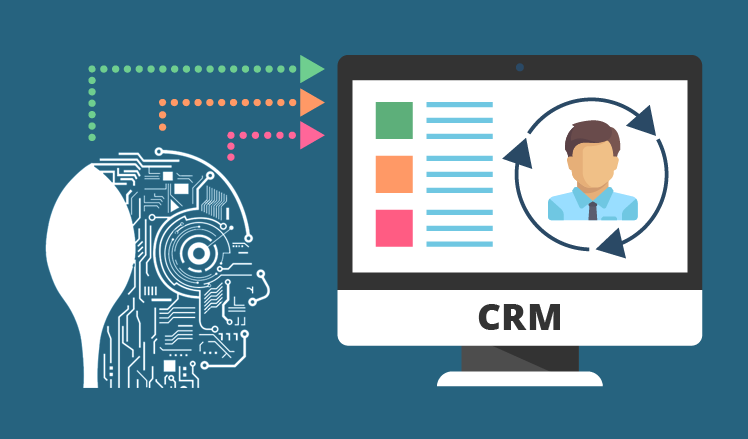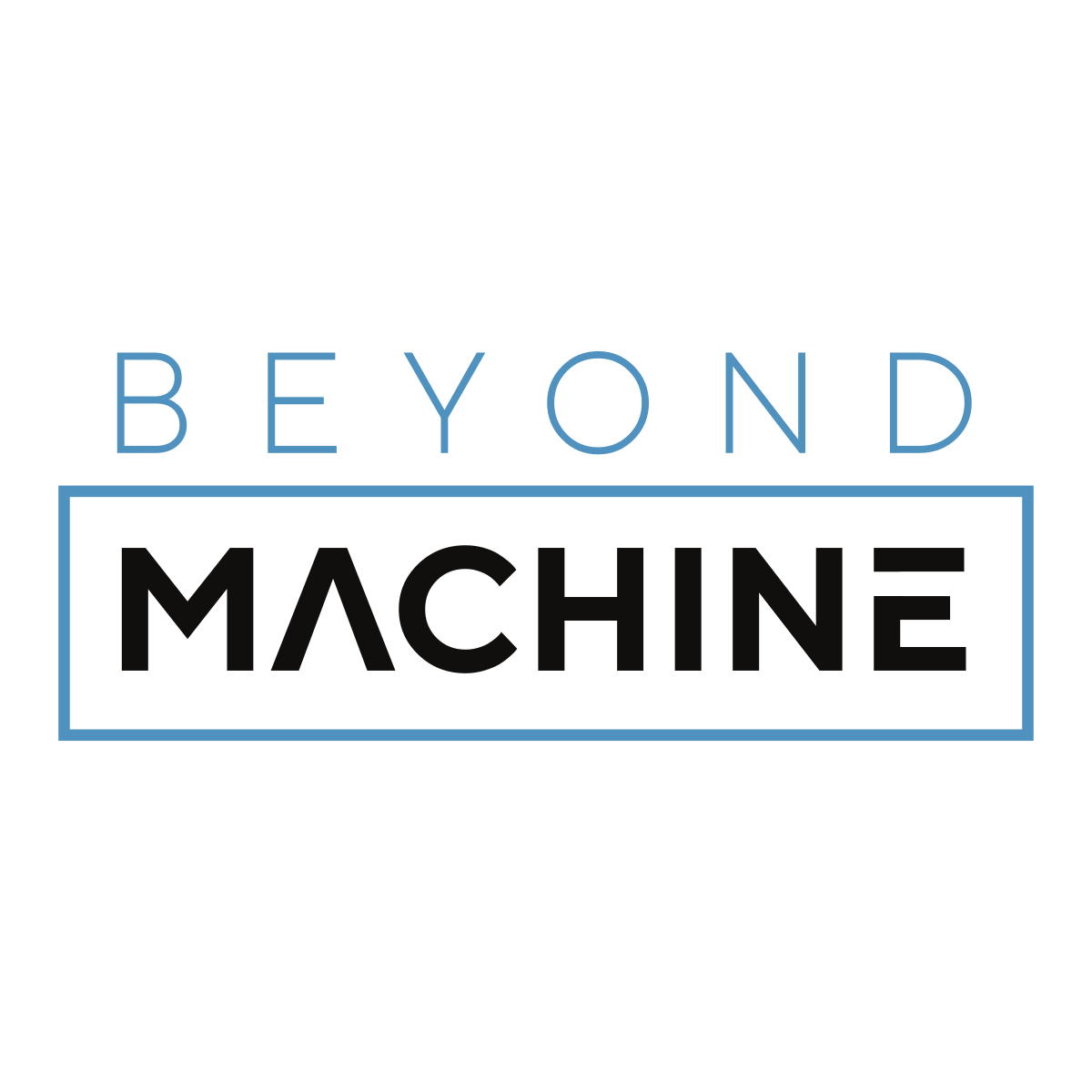Introduction to Business AI Tools
What are Business AI Tools?
Business AI tools are software applications powered by artificial intelligence designed to enhance various business operations, ranging from customer relationship management (CRM) to marketing automation and beyond. These tools leverage machine learning algorithms, natural language processing, and data analytics to automate tasks, provide insights, and drive efficiency within organizations. The increasing adoption of AI tools is transforming the way businesses operate, enabling them to stay competitive in an ever-evolving digital landscape.
Importance of AI in Modern Business
In today’s fast-paced business environment, AI is not just a luxury but a necessity. Companies across various industries are embracing AI to streamline processes, reduce costs, and improve decision-making. AI tools help businesses analyze vast amounts of data quickly, predict trends, personalize customer experiences, and optimize supply chains. The importance of AI in modern business cannot be overstated as it drives innovation and opens new avenues for growth.
Overview of ABC-Media.net
About ABC-Media.net
ABC-Media.net is a leading digital platform known for providing insights and resources on the latest technological trends impacting businesses worldwide. The platform is dedicated to helping businesses navigate the complex world of technology by offering expert advice, industry reports, and curated lists of the best tools available in the market.
Why ABC-Media.net Curated This List?
ABC-Media.net has curated this list of business AI tools to help businesses make informed decisions when it comes to adopting AI technologies. With the plethora of AI tools available today, it can be overwhelming for businesses to choose the right one. This list is designed to highlight the best tools across different business functions, providing a comprehensive guide for companies looking to leverage AI for growth and efficiency.
Tool 1: AI-Powered CRM Systems

What are AI-Powered CRM Systems?
AI-powered CRM systems are customer relationship management tools enhanced with artificial intelligence capabilities. These systems help businesses manage customer interactions more efficiently by automating tasks such as data entry, lead scoring, and follow-ups. AI in CRM can also analyze customer data to provide personalized recommendations, predict customer behavior, and identify opportunities for upselling or cross-selling.
Benefits of Using AI in CRM
Using AI in CRM offers numerous benefits, including improved customer satisfaction, enhanced sales performance, and better decision-making. AI can automate routine tasks, allowing sales teams to focus on building relationships with customers. Additionally, AI-driven insights can help businesses understand customer needs better and tailor their marketing efforts accordingly. The predictive capabilities of AI also enable businesses to anticipate customer needs and proactively address them.
Top AI-Powered CRM Tools
- Salesforce Einstein: A powerful AI tool integrated into Salesforce CRM, offering predictive analytics, automated workflows, and personalized customer experiences.
- HubSpot CRM with AI: HubSpot’s CRM integrates AI to provide sales teams with actionable insights, automated follow-ups, and personalized communication.
- Zoho CRM: Zoho’s AI-powered CRM, Zia, assists in lead scoring, sales predictions, and workflow automation, making it a comprehensive solution for businesses.
Case Studies of AI-Powered CRM Systems in Action
- Company A: Implemented Salesforce Einstein and saw a 20% increase in sales due to improved lead targeting and personalized customer engagement.
- Company B: Leveraged HubSpot’s AI-driven CRM to automate follow-ups and nurture leads, resulting in a 30% increase in customer retention.
- Company C: Adopted Zoho CRM with AI and achieved a 25% reduction in response time, significantly improving customer satisfaction.
Tool 2: AI-Driven Marketing Automation

Understanding AI in Marketing Automation
AI in marketing automation refers to the use of artificial intelligence to automate and optimize marketing tasks. This includes everything from email marketing and social media management to customer segmentation and personalized content creation. AI-driven marketing automation tools can analyze customer data, predict trends, and deliver targeted marketing messages to the right audience at the right time. For a deeper dive, here is a list of the top 8 marketing automation tools that can help you elevate your marketing strategy.
How AI Enhances Marketing Strategies
AI enhances marketing strategies by providing deeper insights into customer behavior, enabling more effective targeting and personalization. With AI, marketers can segment their audience more accurately, create personalized content at scale, and optimize campaigns in real-time. This leads to higher engagement rates, improved customer loyalty, and increased return on investment (ROI).
Best AI-Driven Marketing Automation Tools
- Marketo Engage: An AI-powered marketing automation platform that offers advanced audience segmentation, predictive content, and automated workflows.
- Pardot by Salesforce: A leading AI-driven marketing automation tool that helps businesses create personalized customer journeys, automate campaigns, and measure ROI.
- ActiveCampaign: Combines AI with automation to deliver personalized email marketing, customer segmentation, and predictive analytics for improved marketing outcomes.
Real-Life Applications and Success Stories
- Company D: Used Marketo Engage’s AI capabilities to segment their audience more effectively, leading to a 35% increase in email open rates.
- Company E: Implemented Pardot’s AI-driven automation to personalize customer journeys, resulting in a 40% boost in customer engagement.
- Company F: Leveraged ActiveCampaign’s AI-powered email marketing to drive a 50% increase in conversion rates by delivering more relevant content.
Tool 3: AI-Based Analytics Tools

What are AI-Based Analytics Tools?
AI-based analytics tools are software applications that use artificial intelligence to analyze large volumes of data and generate actionable insights. These tools can process data faster than traditional methods, identify patterns, and predict trends, helping businesses make informed decisions. AI-based analytics tools are used across various industries to optimize operations, improve customer experiences, and drive growth. For a deeper dive, here is a list of the Top 6 AI Tools for Data Analytics
The Role of AI in Data Analytics
AI plays a crucial role in data analytics by automating the analysis process and providing deeper insights than traditional analytics methods. AI algorithms can sift through vast amounts of data to identify trends, correlations, and anomalies that might be missed by human analysts. This allows businesses to make data-driven decisions more quickly and accurately, leading to better outcomes.
Top AI Analytics Tools for Businesses
- Google Analytics with AI: Enhanced with AI features, Google Analytics provides predictive insights, anomaly detection, and automated reports to help businesses optimize their digital strategies.
- IBM Watson Analytics: An AI-powered analytics platform that offers advanced data visualization, natural language processing, and predictive analytics capabilities.
- Tableau with AI: Integrates AI to provide deeper insights through advanced data visualization, predictive analytics, and automated data analysis.
Case Studies Highlighting AI Analytics Success
- Company G: Utilized Google Analytics’ AI features to optimize their digital marketing campaigns, leading to a 25% increase in conversion rates.
- Company H: Leveraged IBM Watson Analytics to identify trends in customer behavior, resulting in a 30% improvement in customer retention.
- Company I: Adopted Tableau’s AI-driven analytics to streamline their data analysis processes, leading to a 20% reduction in operational costs.
Tool 4: AI in Customer Service

AI-Powered Customer Support Tools
AI-powered customer support tools are designed to enhance customer service by automating routine tasks, providing instant responses, and improving the overall customer experience. These tools use AI technologies like chatbots, virtual assistants, and natural language processing to handle customer inquiries, resolve issues, and provide personalized support.
Advantages of AI in Customer Service
The use of AI in customer service offers numerous advantages, including faster response times, 24/7 availability, and personalized interactions. AI-powered tools can handle multiple customer inquiries simultaneously, reducing wait times and improving customer satisfaction. Additionally, AI can analyze customer data to provide personalized recommendations and solutions, enhancing the overall customer experience.
Leading AI Tools for Customer Service
- Zendesk with AI: Integrates AI to provide automated responses, personalized support, and predictive analytics for customer service teams.
- Intercom: An AI-powered customer messaging platform that offers chatbots, automated workflows, and customer insights to improve service delivery.
- Freshdesk with AI: Freshdesk’s AI features include automated ticketing, intelligent routing, and customer sentiment analysis to enhance support operations.
Impact of AI on Customer Satisfaction
- Company J: Implemented Zendesk’s AI features to automate customer support, resulting in a 40% reduction in response times and a 20% increase in customer satisfaction.
- Company K: Leveraged Intercom’s AI-powered chatbots to handle routine inquiries, leading to a 30% increase in first-contact resolution rates.
- Company L: Adopted Freshdesk’s AI-driven ticketing system, improving support efficiency by 35% and boosting customer satisfaction scores.
Tool 5: AI-Enabled Content Creation Tools

AI’s Role in Content Creation
AI-enabled content creation tools are transforming the way businesses produce content by automating the writing process, generating ideas, and optimizing content for search engines. These tools use natural language processing and machine learning to create high-quality content that is relevant, engaging, and tailored to the target audience.
Top AI Tools for Content Development
- Jarvis (Jasper): An AI writing assistant that helps businesses create blog posts, social media content, and marketing copy with ease.
- Copy.ai: A content creation tool powered by AI that generates copy for ads, product descriptions, and email campaigns.
- Grammarly with AI: An AI-powered writing assistant that offers grammar and style suggestions, content optimization, and plagiarism detection.
Success Stories of AI-Generated Content
- Company M: Used Jarvis to automate blog writing, resulting in a 50% increase in content production and improved SEO performance.
- Company N: Leveraged Copy.ai to create engaging ad copy, leading to a 40% increase in click-through rates.
- Company O: Implemented Grammarly’s AI features to enhance the quality of their content, reducing errors by 30% and boosting reader engagement.
Tool 6: AI in Supply Chain Management

AI-Driven Supply Chain Solutions
AI-driven supply chain solutions are designed to optimize supply chain operations by automating processes, predicting demand, and improving inventory management. These tools use AI technologies like machine learning, predictive analytics, and robotics to enhance efficiency, reduce costs, and improve the overall performance of the supply chain.
Benefits of Using AI in Supply Chains
The use of AI in supply chains offers several benefits, including improved forecasting accuracy, reduced lead times, and better inventory management. AI tools can analyze historical data to predict demand, optimize routes for transportation, and automate warehouse operations, leading to cost savings and increased efficiency.
Top AI Tools for Supply Chain Management
- Llamasoft with AI: A supply chain analytics platform that uses AI to optimize inventory, forecast demand, and improve supply chain planning.
- ClearMetal: An AI-powered visibility platform that provides real-time tracking, predictive analytics, and optimization for supply chains.
- JDA Software: Integrates AI to enhance supply chain planning, demand forecasting, and inventory optimization.
Real-World Impact of AI in Supply Chains
- Company P: Implemented Llamasoft’s AI-driven analytics to improve demand forecasting, leading to a 20% reduction in stockouts and excess inventory.
- Company Q: Leveraged ClearMetal’s AI-powered visibility platform to enhance supply chain transparency, reducing lead times by 25%.
- Company R: Adopted JDA Software’s AI features to optimize inventory management, resulting in a 15% decrease in operational costs.
Tool 7: AI for Financial Forecasting

What is AI Financial Forecasting?
AI financial forecasting involves the use of artificial intelligence to predict future financial outcomes based on historical data. AI tools can analyze vast amounts of financial data to identify trends, forecast revenue, and predict market fluctuations, helping businesses make informed financial decisions.
Top AI Tools for Financial Forecasting
- Kabbage Insights: An AI-powered financial forecasting tool that provides cash flow predictions, revenue forecasting, and expense tracking.
- Futrli with AI: An AI-driven financial forecasting platform that offers real-time financial insights, scenario planning, and budget management.
- QuickBooks with AI: Integrates AI to provide predictive financial insights, automated accounting, and revenue forecasting for small businesses.
Case Studies of AI in Financial Predictions
- Company S: Used Kabbage Insights to improve cash flow management, leading to a 30% reduction in financial risk and improved decision-making.
- Company T: Leveraged Futrli’s AI-driven forecasting to enhance budget planning, resulting in a 25% increase in financial accuracy.
- Company U: Adopted QuickBooks’ AI features to automate financial forecasting, improving revenue predictions by 20% and reducing accounting errors.
Tool 8: AI-Based Human Resource Tools

AI’s Influence on HR Management
AI-based human resource (HR) tools are transforming the way businesses manage their workforce by automating recruitment processes, enhancing employee engagement, and improving talent management. These tools use AI technologies like machine learning and natural language processing to streamline HR operations and make data-driven decisions.
Best AI Tools for HR and Recruitment
- Workday with AI: An AI-powered HR management platform that offers automated recruitment, performance management, and employee engagement tools.
- HireVue: An AI-driven recruitment tool that uses video interviews and predictive analytics to assess candidates and streamline the hiring process.
- LinkedIn Talent Insights with AI: Provides AI-driven talent analytics, recruitment insights, and workforce planning to help businesses attract and retain top talent.
Case Studies: AI in Human Resources
- Company V: Implemented Workday’s AI features to automate recruitment, reducing time-to-hire by 40% and improving the quality of hires.
- Company W: Leveraged HireVue’s AI-driven recruitment tool to assess candidates more effectively, resulting in a 30% increase in hiring efficiency.
- Company X: Adopted LinkedIn Talent Insights with AI to improve workforce planning, leading to a 20% reduction in employee turnover.
Tool 9: AI in Sales Optimization

How AI Enhances Sales Strategies
AI in sales optimization involves using artificial intelligence to improve sales strategies, enhance customer interactions, and increase conversion rates. AI tools can analyze customer data, predict sales trends, and provide personalized recommendations, helping sales teams close deals more effectively.
Leading AI Tools for Sales Optimization
- InsideSales with AI: An AI-powered sales acceleration platform that offers predictive analytics, lead scoring, and automated sales processes.
- Outreach.io: Integrates AI to optimize sales workflows, automate follow-ups, and provide actionable insights for sales teams.
- SalesLoft with AI: A sales engagement platform that uses AI to improve sales cadence, personalize communication, and track performance metrics.
Impact of AI on Sales Performance
- Company Y: Used InsideSales’ AI-driven analytics to improve lead scoring, resulting in a 25% increase in conversion rates.
- Company Z: Leveraged Outreach.io’s AI features to automate sales follow-ups, leading to a 30% reduction in response times and improved customer engagement.
- Company AA: Adopted SalesLoft’s AI-powered sales engagement tools, resulting in a 20% increase in sales productivity and revenue growth.
Tool 10: AI-Powered Security Solutions

AI’s Role in Enhancing Business Security
AI-powered security solutions are designed to protect businesses from cyber threats by automating threat detection, enhancing risk management, and providing real-time security insights. These tools use AI technologies like machine learning, anomaly detection, and behavioral analytics to identify and mitigate security risks.
Top AI-Powered Security Tools
- Darktrace: An AI-driven cybersecurity platform that uses machine learning to detect and respond to cyber threats in real-time.
- CrowdStrike with AI: An AI-powered endpoint security solution that offers threat intelligence, automated incident response, and real-time threat monitoring.
- Vectra AI: Uses AI to detect and respond to cyberattacks, providing advanced threat detection, network visibility, and security automation.
Case Studies of AI in Business Security
- Company AB: Implemented Darktrace’s AI-powered cybersecurity tools, reducing cyber threat detection time by 50% and preventing potential breaches.
- Company AC: Leveraged CrowdStrike’s AI-driven endpoint security to enhance threat detection and response, resulting in a 40% reduction in security incidents.
- Company AD: Adopted Vectra AI’s advanced threat detection capabilities, improving network security by 30% and mitigating risks more effectively.
Choosing the Right AI Tool for Your Business

Factors to Consider When Selecting AI Tools
When selecting AI tools for your business, consider factors such as ease of integration, scalability, cost, and the specific needs of your organization. It’s important to choose tools that align with your business goals and offer the features you need to achieve them. Additionally, consider the level of support and training provided by the vendor, as this can impact the success of your AI implementation.
How to Implement AI Tools Effectively
To implement AI tools effectively, start by identifying the areas of your business that can benefit most from AI. Conduct a thorough assessment of your current processes and determine where AI can add value. It’s also important to involve key stakeholders in the decision-making process and provide training to ensure a smooth transition. Finally, monitor the performance of the AI tools regularly and make adjustments as needed to optimize their impact.
Common Challenges and How to Overcome Them
Implementing AI tools can come with challenges, such as data quality issues, resistance to change, and the need for technical expertise. To overcome these challenges, ensure that your data is clean and well-organized before implementing AI tools. Communicate the benefits of AI to your team and provide training to help them adapt to the new technology. Additionally, consider partnering with AI experts or vendors who can provide the necessary support and guidance.
Future Trends in Business AI Tools
Emerging AI Technologies in Business
As AI continues to evolve, new technologies are emerging that have the potential to further transform business operations. These include AI-powered edge computing, quantum AI, and autonomous AI systems. Businesses that stay ahead of these trends will be better positioned to capitalize on the opportunities they present.
Predictions for the Future of AI in Business
The future of AI in business is bright, with AI expected to play an even greater role in driving innovation and growth. Businesses will increasingly rely on AI to make data-driven decisions, optimize operations, and deliver personalized experiences. As AI becomes more accessible and affordable, even small businesses will be able to leverage its power to compete with larger enterprises.
Conclusion
In this article, we explored the top 10 business AI tools curated by ABC-Media.net, covering a wide range of applications from CRM and marketing automation to supply chain management and cybersecurity. These tools are helping businesses streamline operations, improve customer experiences, and drive growth.

